ELAR 6.10
Composition: listening, speaking, reading, writing, and thinking using multiple texts--writing process. The student uses the writing process recursively to compose multiple texts that are legible and uses appropriate conventions. The student is expected to:
(A) plan a first draft by selecting a genre appropriate for a particular topic, purpose, and audience using a range of strategies such as discussion, background reading, and personal interests;
(B) develop drafts into a focused, structured, and coherent piece of writing by:
(i) organizing with purposeful structure, including an introduction, transitions, coherence within and across paragraphs, and a conclusion; and
(ii) developing an engaging idea reflecting depth of thought with specific facts and details;
(C) revise drafts for clarity, development, organization, style, word choice, and sentence variety;
(D) edit drafts using standard English conventions, including:
(i) complete complex sentences with subject-verb agreement and avoidance of splices, run-ons, and fragments;
(ii) consistent, appropriate use of verb tenses;
(iii) conjunctive adverbs;
(iv) prepositions and prepositional phrases and their influence on subject-verb agreement;
(v) pronouns, including relative;
(vi) subordinating conjunctions to form complex sentences and correlative conjunctions such as either/or and neither/nor;
(vii) capitalization of proper nouns, including abbreviations, initials, acronyms, and organizations;
(viii) punctuation marks, including commas in complex sentences, transitions, and introductory elements; and
(ix) correct spelling, including commonly confused terms such as its/it's, affect/effect, there/their/they're, and to/two/too; and
(E) publish written work for appropriate audiences.
- Plus Plan
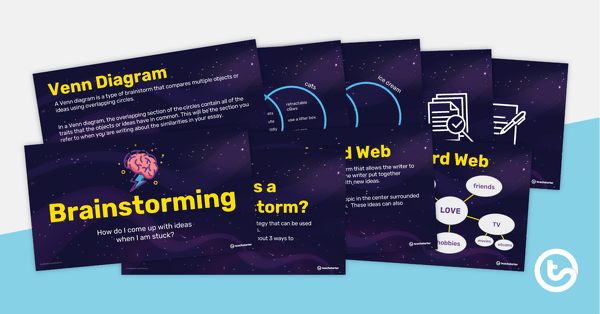
Brainstorming Techniques PowerPoint
An editable PowerPoint to use when teaching various brainstorming techniques.
- Plus Plan
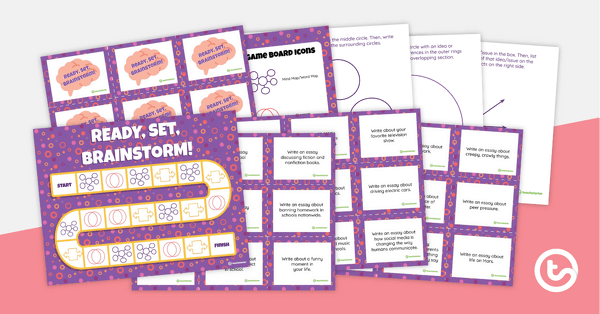
Ready, Set, Brainstorm! - Board Game
A board game to practice brainstorming using mind maps, Venn diagrams, and cause and effect charts.
- Plus Plan
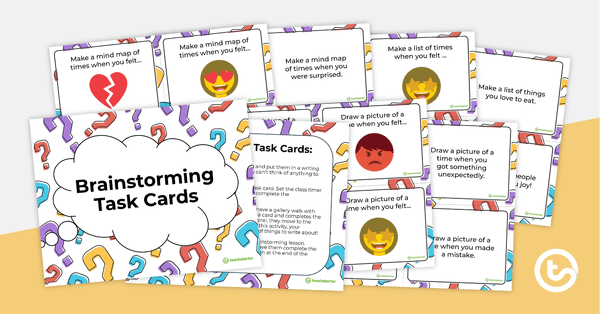
Brainstorming Task Cards
A set of 24 task cards to practice the brainstorming techniques of drawing a picture, creating a mind map, and making a list.
- Plus Plan
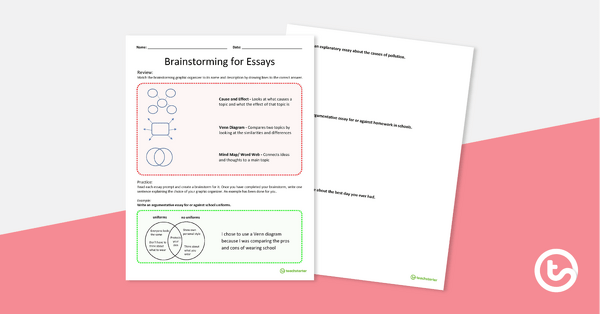
Brainstorming for Essays Worksheet
A worksheet to practice using Venn diagrams, mind maps, and cause and effect maps to brainstorm for various essays.
- Plus Plan
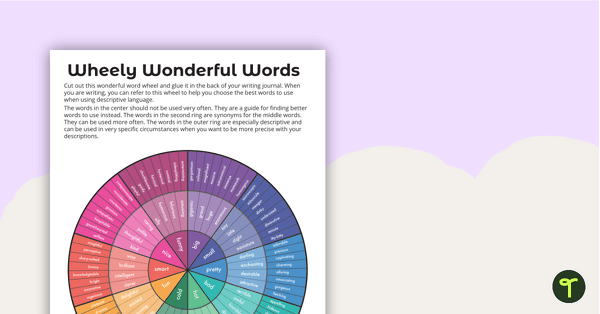
Wheely Wonderful Words – Overused Adjectives
Banish overused adjectives with a handy adjective-synonym word wheel!
- Plus Plan
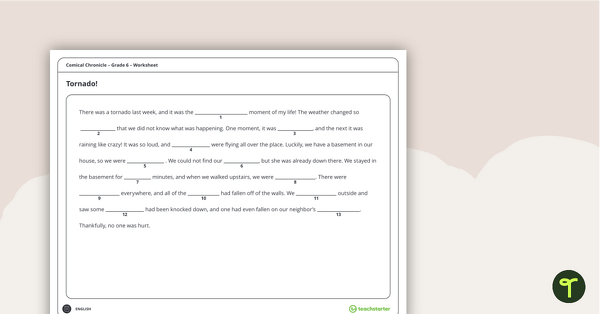
Comical Chronicle Worksheets for 6th Graders
Practice different parts of speech with your 6th graders using this set of 10 ad-lib style stories.
- Plus Plan
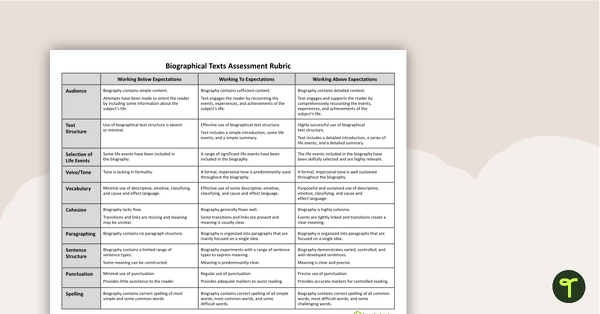
Assessment Rubric – Biographical Texts
An assessment rubric designed to help teachers to assess students’ biography writing.
- Plus Plan
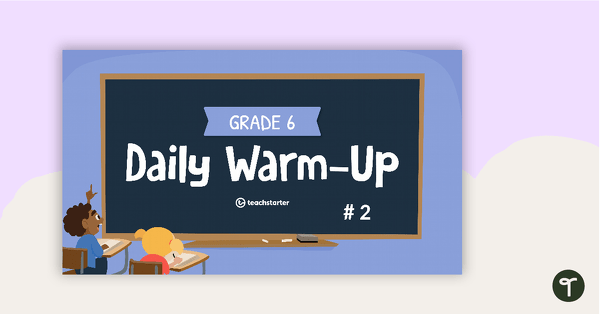
Grade 6 Daily Warm-Up – PowerPoint 2
A 76-slide PowerPoint presentation containing a variety of quick warm-up activities.
- Plus Plan
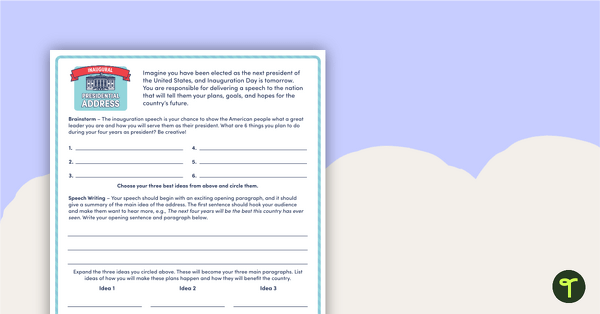
Write Your Inaugural Address
A template for students to plan and write an inaugural Presidential Address.
- Plus Plan
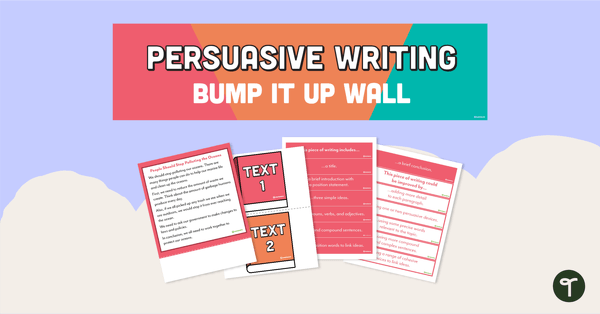
Persuasive Writing Bump It Up Wall – Grade 6
Help your 6th-grade students "bump up" their persuasive writing with this bulletin board display.
- Plus Plan

Grade 6 Daily Warm-Up – PowerPoint 1
An 80-slide PowerPoint presentation containing a variety of quick warm-up activities.
- Plus Plan
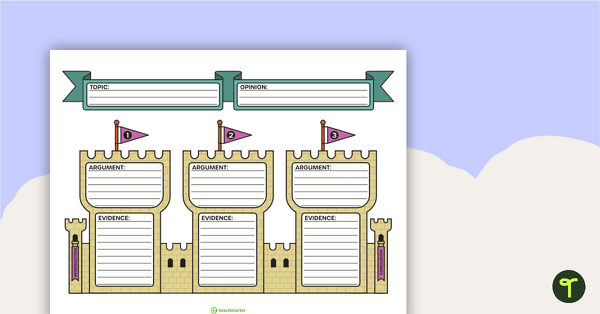
Persuasive Planning Template – Castle
Plan a persuasive text with this castle planning template.
- Plus Plan
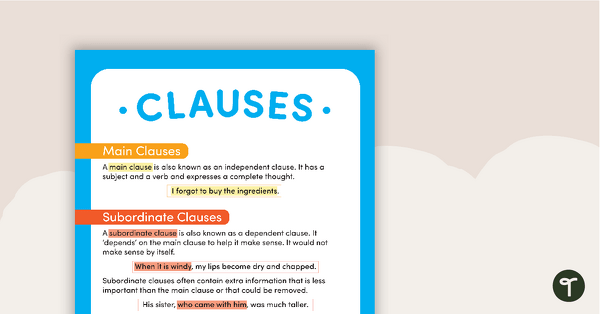
Main Clauses and Subordinate Clauses Poster
A poster explaining main clauses and subordinate clauses.
- Plus Plan
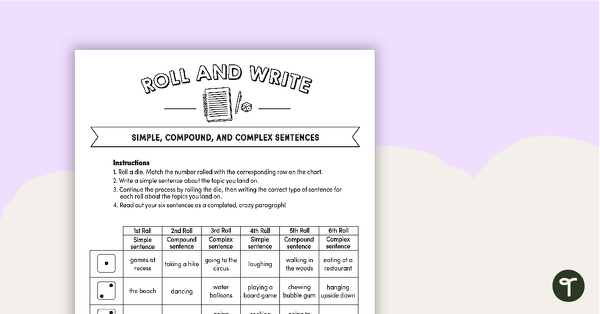
Roll and Write – Simple, Compound, and Complex Sentences
Practice writing simple, compound, and complex sentences with our Roll and Write activity.
- Plus Plan
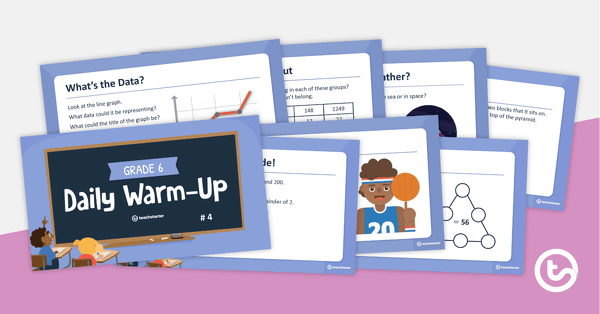
Grade 6 Daily Warm-Up – PowerPoint 4
A 72-slide PowerPoint presentation containing a variety of quick warm-up activities.
- Plus Plan
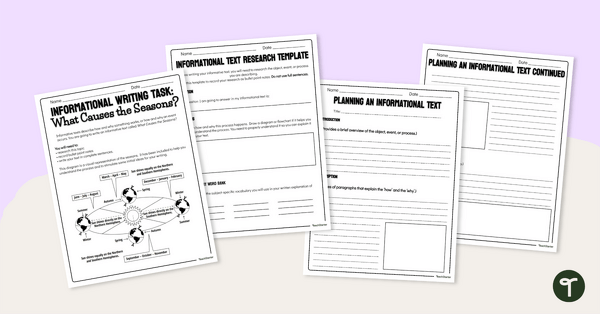
What Causes the Seasons? Informative Text Writing Task
Use this scaffolded writing task to have students write about how seasons change.
- Plus Plan
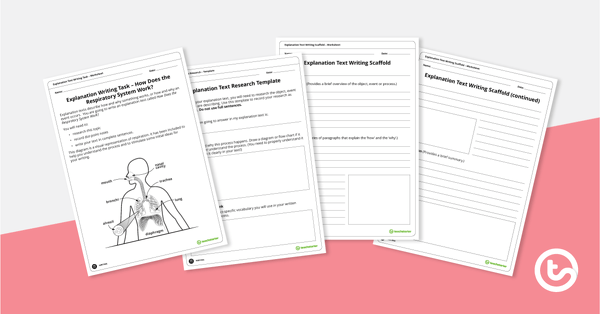
Informative Text Writing Task – How Does the Respiratory System Work?
A scaffolded writing task for students to complete when learning about the informative text type.
- Plus Plan
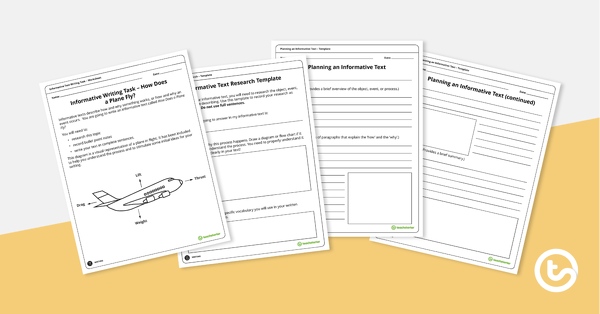
Informative Text Writing Task – How Does a Plane Fly?
A scaffolded writing task for students to complete when learning about the informative text type.
- Plus Plan
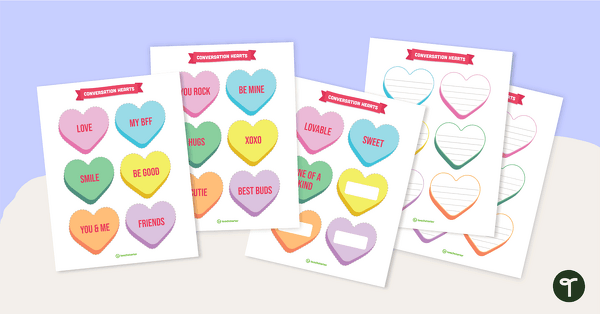
Conversation Hearts - Template
Turn this set of 18 conversation heart templates into a variety of teaching resources leading up to Valentine's Day.
- Plus Plan
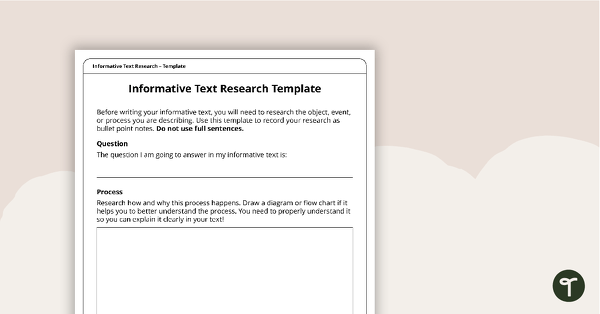
Informative Text Research Template
A research template for students to use when writing an informative text.
- Plus Plan
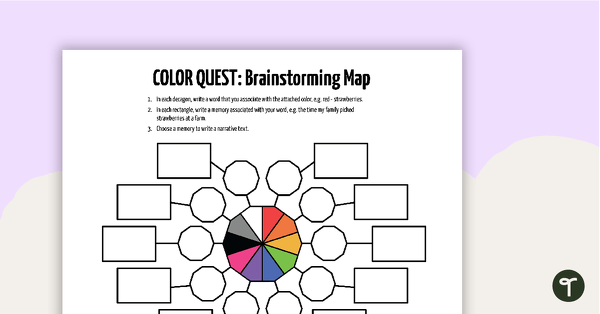
Color Quest: Brainstorming Map
A template to use with your students when brainstorming for a narrative text.
- Plus Plan
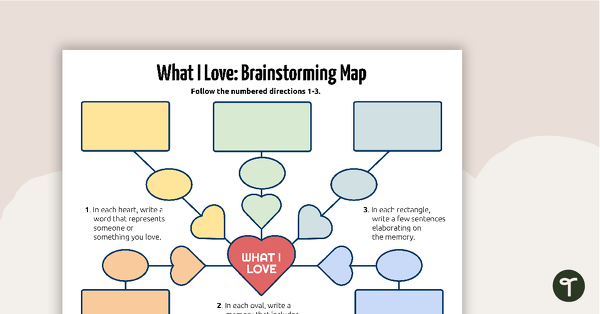
What I Love: Brainstorming Map
A template to use with your students when brainstorming for a narrative text.
- Plus Plan

Everyday Grammar Sentence Structure Warm-Ups – Grades 5 and 6 Interactive PowerPoint
An engaging 40 slide interactive PowerPoint to use in the upper grades classroom when learning about grammar and sentence structure.
- Plus Plan

Everyday Grammar Capitalization and Punctuation Warm-Ups – Grades 5 and 6 Interactive PowerPoint
An engaging 44-slide interactive PowerPoint to use in the upper grades classroom when learning about grammar and punctuation.
- Plus Plan
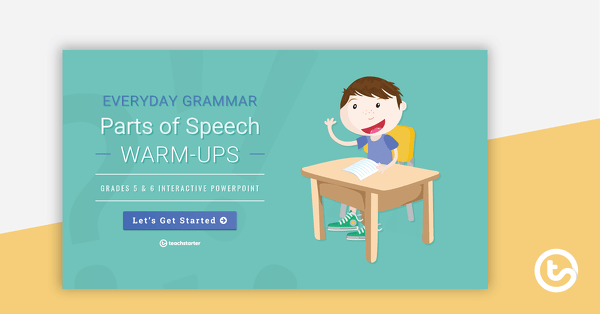
Everyday Grammar Parts of Speech Warm-Ups – Grades 5 and 6
A 39-slide editable PowerPoint to use when reviewing parts of speech with your students.
- Plus Plan
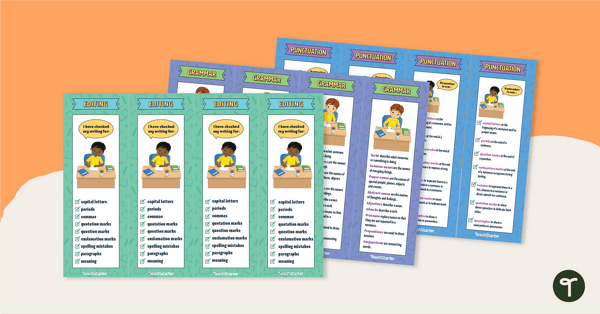
Grammar and Punctuation Checklist Bookmarks
Use these grammar and punctuation checklist bookmarks to support your students in editing their writing.
- Plus Plan
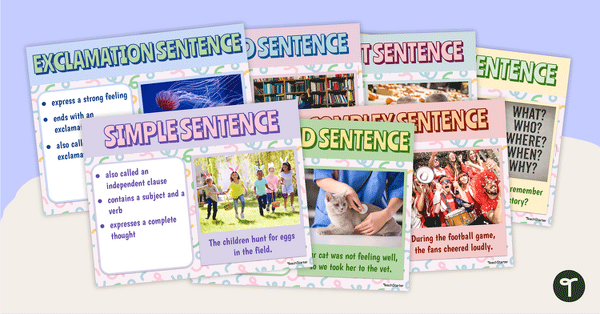
Four Types of Sentences Poster Collection - Primary and Intermediate
Display these posters highlighting the four types of sentences and teach your students to use varied sentence types in their writing.
- Plus Plan
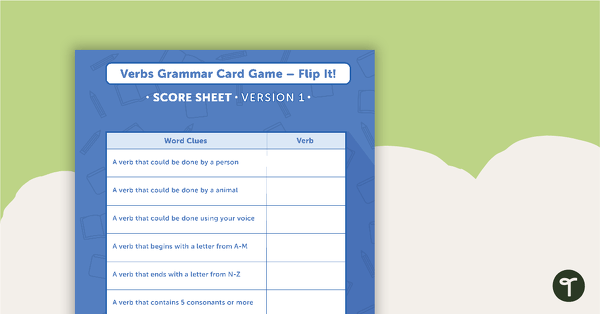
Verb Grammar Card Game - Flip It!
A fun game for students to play in small groups to reinforce their understanding of verbs.
- Free Plan
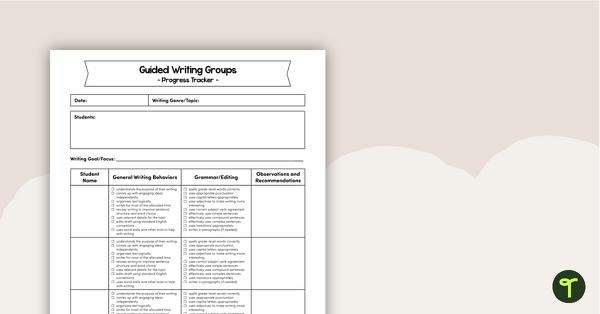
Guided Writing Groups - Progress Tracker
Track student progress during guided writing sessions with this template.
- Plus Plan
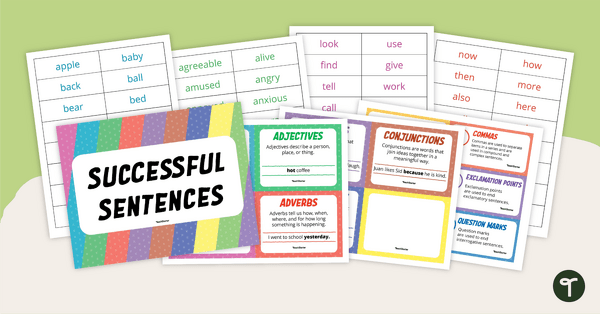
Successful Sentences – Sentence Construction Cards
Word cards for constructing complex sentences.
- Plus Plan
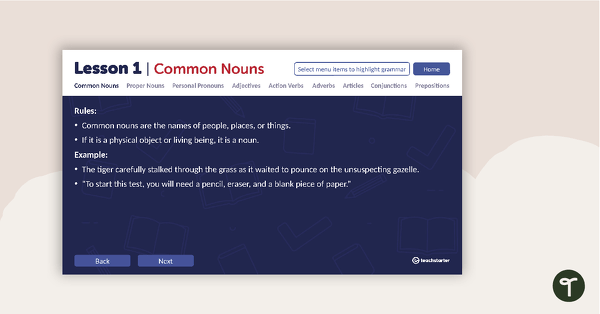
Paragraph Study Grammar Interactive PowerPoint
Interactive PowerPoint presentation allowing students to learn and review grammar by highlighting paragraphs.
- Plus Plan
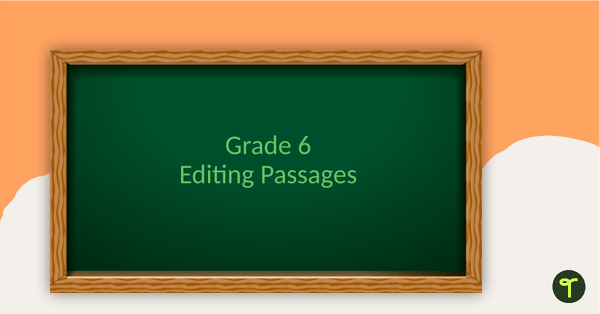
6th Grade Revising and Editing Passages
Use this set of 6th grade revising and editing passages to help your students demonstrate their spelling, punctuation and grammar knowledge.